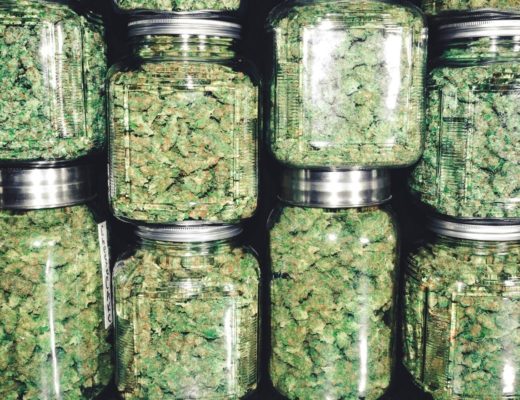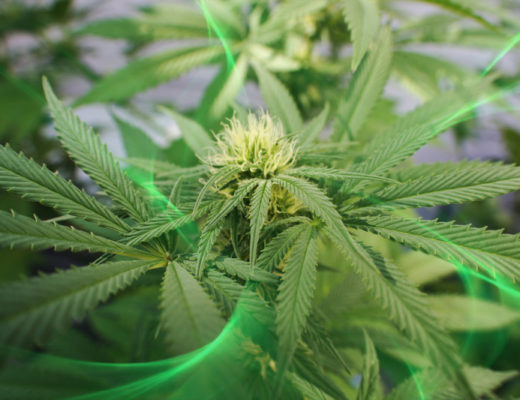Over 80 years after the racist propaganda film Reefer Madness was released and the so-called War on Drugs began, arrests are still being made over recreational cannabis use. In fact, arrests for cannabis use were actually higher in 2020 than in 2019. This is despite the fact that we know the movie, which helped convince lawmakers to outlaw recreational cannabis, was completely inaccurate and evidence that the War on Drugs has been expensive, racist, ineffective, and only serves to fill private prisons. In every possible metric, the War on Drugs has been a costly failure and an example of how countries should not to deal with their drug epidemics.
But now, public opinion is changing. Multiple states have legalized or decriminalized cannabis, which created an opening for the legal cannabis industry. Just one problem: the industry is largely white. This has created two Americas: one in which the legal cannabis industry is booming and raking in vast profits, and another where minorities are still being arrested at high rates for cannabis-related offenses which is in turn harming them financially. In order to correct this trend, the industry needs social equity. It needs to come to terms with the fact that those in a position to help minorities get into the industry, whether as a worker or an owner, need to do so now.
The War on Drugs
Although there were various local laws prohibiting drug possession and use throughout the US during the 1800s and early 1900s, nothing was done federally (excluding the short lived prohibition) until 1937, when the Marijuana Tax Act was passed. While this didn’t actually ban cannabis federally, it was this act that passed after the release of Reefer Madness that led to the eventual federal ban on marijuana.
Before its passing, many Americans watched the film Reefer Madness which portrayed cannabis smokers as brazen criminals who joy ride in broad daylight and engage in many other high-risk and criminal activities. It also showcases Black men who’ve smoked cannabis as rapists, one reason this incredibly racist and inaccurate propaganda film should’ve never had any real influence on policy.
In 1970, Richard Nixon officially launched what we know as the War on Drugs, saying that drug abuse was “public enemy number one.” It should also be known as the war on facts: it categorized cannabis alongside heroin as a drug that is highly addictive without many medical benefits. Lastly, it could also be referred to as the war on drug users, as the preferred response to drug use was largely imprisonment and a permanent criminal record against mostly minorities and those belonging to counter culture movements. As a result of Nixon’s policies, the DEA was born. And its budget has ballooned from less than $75 million to over $2 billion, healthily outpacing inflation.
After Nixon, the next most influential president on the War on Drugs came Ronald Wilson Reagan, who wanted to reinforce Nixon’s work on the War on Drugs. Reagan decided that the only way to win the war on drugs was with lengthier and harsher sentencing. So nonviolent drug offenders began to get increasingly long and ridiculous sentences, increasing their percentages among the prison population. Shortly afterward, mandatory minimum sentences were being enforced, meaning that even if a judge wanted to give a more lenient sentence due to circumstance, it was no longer possible. These disastrous policies led to a mass incarceration issue that is still rampant today.
The lasting impact of the War on Drugs
As a result of the War on Drugs, the American prison population remains one of the highest in the world, with far too many being nonviolent drug offenders. This group includes those who illegally sold or had possession of cannabis, and this group just happens to be overrepresented by minorities. This is caused by policing minority communities more heavily than white communities, despite similar recreational cannabis use in majority white communities, which guarantees minorities will remain the most likely to be pulled over or stopped over various cannabis-related offenses. While many cities and states have legalized or decriminalized cannabis, minorities are still being arrested for cannabis-related offenses outside of these areas. It has crippled entire communities who are still dealing with the impacts of the continued War on Drugs today.
Social Equity in the Cannabis Industry
There are plenty of minorities who are knowledgeable and passionate about cannabis. But they are far less likely to be able to get a license to grow or sell cannabis. They are also less likely to be employed in the cannabis industry. Social equity needs to start with minority owners: this includes help with getting licenses and other hoops that have to be jumped through to start legal cannabis farms, dispensaries or other related businesses. Minority cannabis business owners should also receive help with funding. Thanks to the nature of inequality in the US, minorities are less likely to be able to afford to start their own operation or receive the necessary funding and loans to get started.
And then there is social equity for minority workers: minorities are currently underrepresented among workers in the legal cannabis industry. The first who should be offered employment in the industry are minorities who have wrongly served time for nonviolent cannabis related offenses and now have a record that may make it more difficult to find other work going forward. They were criminalized by a racist system and do not deserve to be left behind by the cannabis industry. The industry is in a position to create real, lasting social equity by actually caring about diversity and not just paying lip service.
Social equity in the cannabis industry would look like the industry coordinating and coming together to help minority business owners get their licenses and financing in order so that they can start their own cannabis businesses. It would also look like the industry intentionally hiring those with nonviolent, cannabis related offenses so that those who suffered from pointless and racist policies aren’t left behind by an industry that currently doesn’t look like them. It would look like the industry caring about the ramifications of the industry locking out minorities who are criminalized for doing the same thing. And caring about the juxtaposition of well off, corporate growers getting rich as minorities are still getting arrested merely for possession. The industry can create real social equity and should do so. Sooner than later.





No Comments